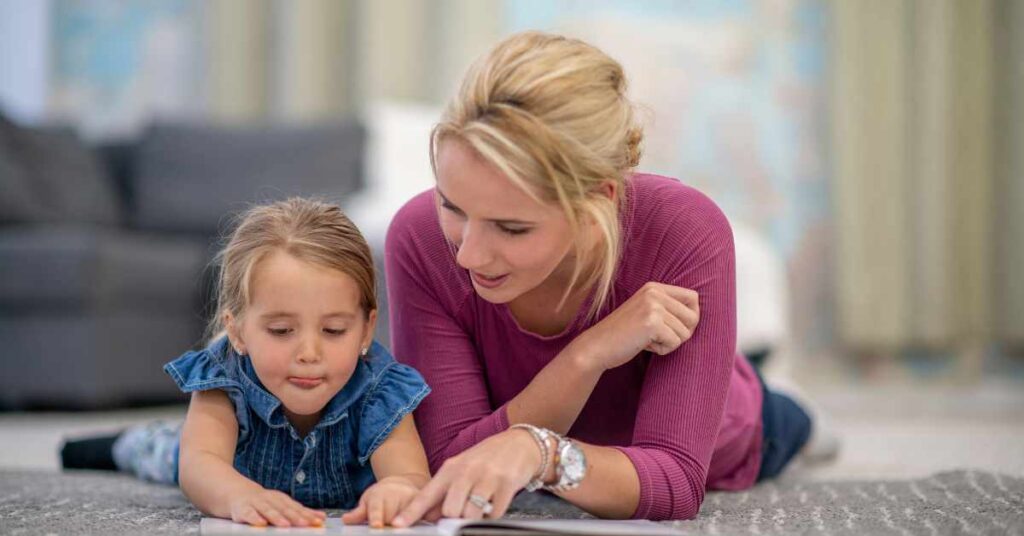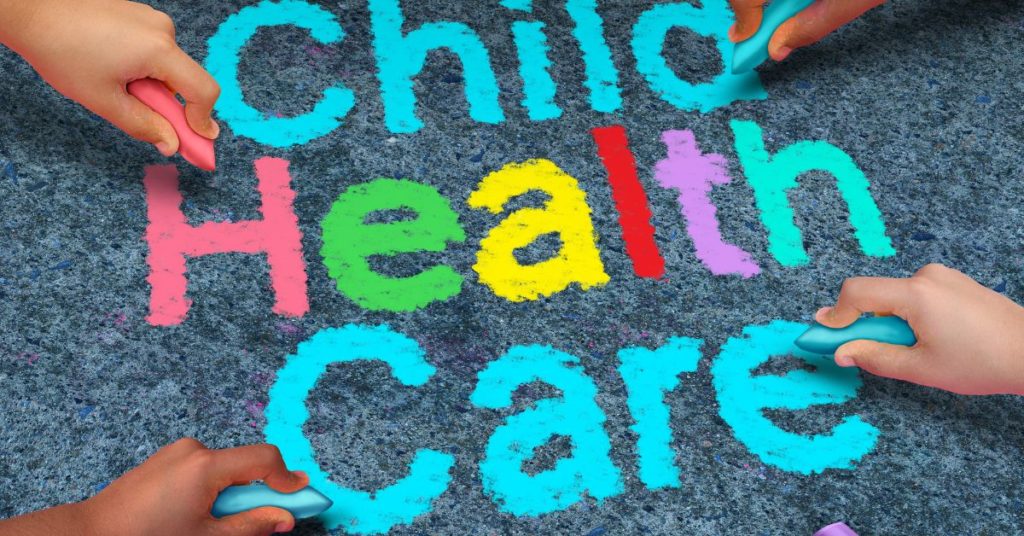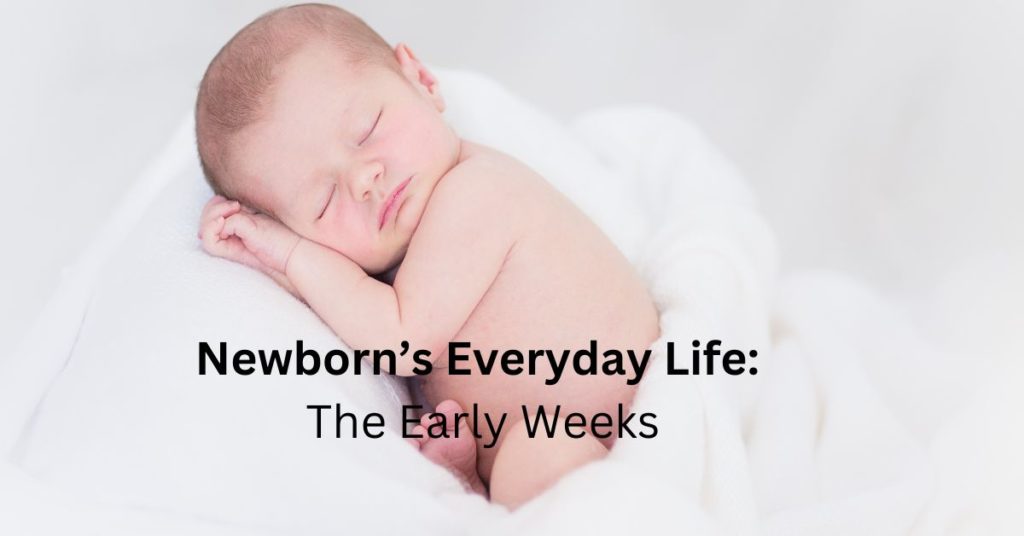In this article, I will tell you:
- First, how does a child perceive the world? Why perception influences health patterns? Sense organs are tools of perception.
- Second, how does the brain function? What are thoughts and emotions, and how do they affect the formation of health?
- Third, what health actually is and its components.
- Ultimately, we will summarize what determines health and how to nurture and care for it from the very beginning of life – from birth.
Table of Contents
Introduction
- The relationship between a child’s perception of the world and their health is evident.
- A child’s perception of the world can affect their physical and mental health in various ways.
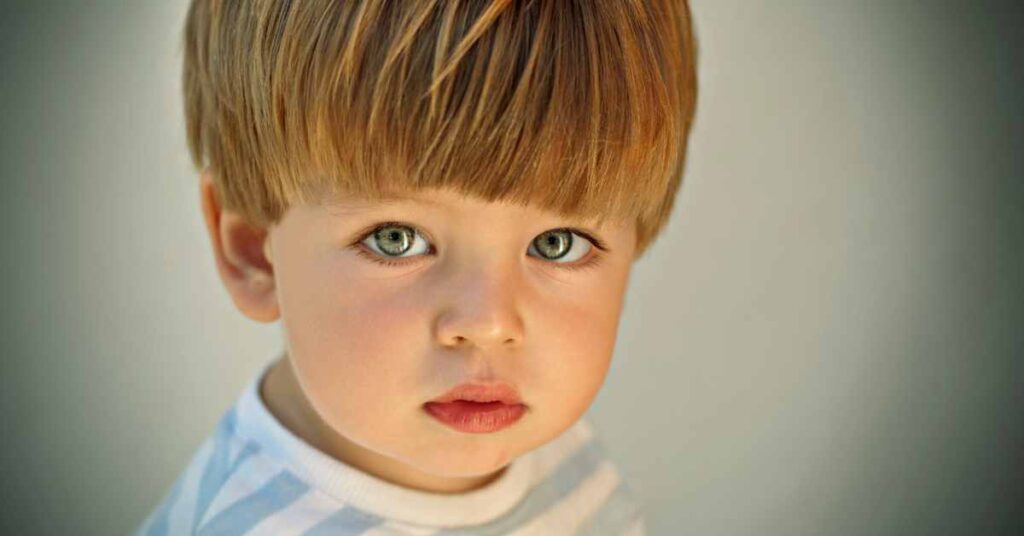
For example, suppose a child perceives the world as a dangerous and scary place. In that case, they may experience stress and anxiety, which can negatively affect their physical health, such as elevated blood pressure and increased risk of chronic diseases. Additionally, their mental health may suffer, and they may develop conditions such as anxiety disorders, depression, or post-traumatic stress disorder.
On the other hand, if a child perceives the world as a safe and nurturing place, they may experience a sense of security and well-being, which can have positive effects on their physical and mental health. They may be more likely to engage in healthy behaviors, such as exercise and a balanced diet, and they may have better mental health outcomes, such as lower stress and anxiety levels.
It’s important to note that a child’s world perception is shaped by various factors, including their experiences, environment, culture, and family dynamics.
As such, it’s crucial to provide children with supportive and positive environments that foster a healthy perception of the world, which can help promote their overall health and well-being.
We have already heard about the following:
- Mindset,
- Behavior,
- Power of positive thinking.
But do you know what creates them? How do they connect with the child’s world perception, and how the perception influences each of these parameters?
Let´s talk about a child`s perception and brain function
A child perceives the world through the senses – sight, hearing, smell, taste, and touch, which he receives from the 5 sense organs: eyes, ears, nose, tongue, and skin. There is also a sixth sense – intuition. But we will talk about it in the next article.

The signals from sense organs, which are waves of different frequencies, enter the corresponding brain area in the form of nerve impulses. Neurons (brain cells) fire electrical and chemical signals in the brain. Their shapes and connections help them perform a specialized functions, such as learning, storing memories, thinking, or controlling muscles.
Thinking is a pattern of activity across a network of neurons. The messengers relaying our thoughts are neurotransmitters.
Proteins make enzymes, and enzymes make neurotransmitters, which are key to how we think and how we feel.
An example of neurotransmitters that keep us happy is serotonin and melatonin. Neurotransmitters that keep us motivated are dopamine and adrenalin.
Neurotransmitters are chemical messengers that transmit signals between neurons in the nervous system. Many neurotransmitters are involved in the functioning of the vegetative nervous system. For example, the sympathetic nervous system releases neurotransmitters such as norepinephrine and epinephrine, which activate the “fight or flight” response in the body. The parasympathetic nervous system releases neurotransmitters such as acetylcholine, which helps to slow down bodily processes and promote relaxation.
The vegetative nervous system (also known as the autonomic nervous system) is responsible for regulating many involuntary bodily functions, such as heart rate, digestion, and breathing. It is composed of two branches: the sympathetic nervous system and the parasympathetic nervous system.
In summary, neurotransmitters play a crucial role in the functioning of the vegetative nervous system by transmitting signals between neurons and regulating bodily processes.
Through neurotransmitters and the vegetative nervous system, thoughts and emotions affect a child’s body, triggering a cascade of biochemical reactions in the cells of different organs. These biochemical reactions reflect the body’s metabolic processes, forming health or disease patterns.
Resume: The feelings we express to our children through their sense organs enter the brain and build different networks of neurons, which create responses in the form of specific thought patterns and behaviors.
Child`s perception and Parental care
A child’s world perception is shaped by their experiences and interactions with the environment, including their parents, caregivers, peers, and cultural context. This perception, in turn, can influence their mindset and behavior in negative or positive way. Another words, in healthy or unhealthy way.
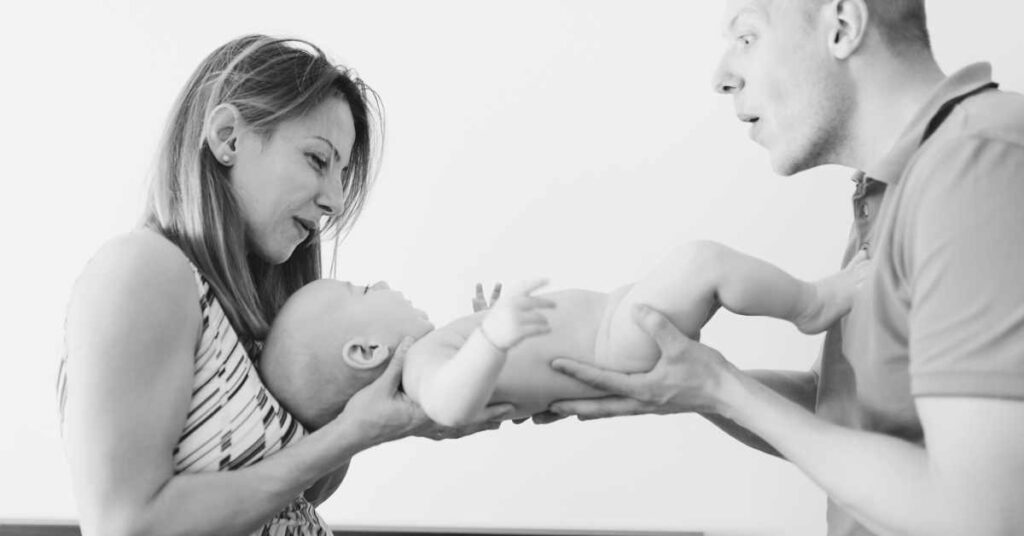
For example, if a child grows up in an environment where they are consistently praised for their efforts and encouraged to persist through challenges, they are likely to develop a growth mindset – the belief that their abilities can be developed through dedication and hard work. On the other hand, if a child is frequently criticized or punished for their mistakes, they may develop a fixed mindset – the belief that their abilities are predetermined and cannot be changed.
Similarly, a child’s perception of the world can affect their behavior. For instance, a child who has experienced trauma or abuse may exhibit behaviors such as aggression, withdrawal, or mistrust as a way of coping with their experiences. On the other hand, a child who has grown up in a supportive and nurturing environment may be more likely to exhibit positive behaviors such as empathy, cooperation, and resilience.
Therefore, understanding a child’s world perception is crucial in promoting a positive mindset and behavior. By providing a safe and supportive environment, validating their feelings and experiences, and providing opportunities for growth and learning, we can help children develop a positive mindset and behaviors that will serve them well throughout their lives.
Children perceive the world through the senses
The development of the five senses in children is a fascinating and complex process that begins from birth and continues through infancy and early childhood. Each sense – sight, hearing, smell, taste, and touch – has its own unique development and peculiarities.
Parents have to learn about the peculiarities of all of these senses in order to provide good quality nurturing to their children.
Here’s a brief overview:
Touch: touch is the first sense that children experience, and it plays a critical role in their emotional and social development. Newborns are very sensitive to touch and can feel pain. They have a reflex called the “grasping reflex,” where they will automatically grasp anything touching their hand’s palm. As they develop, their sense of touch becomes more refined, and they become more adept at identifying different textures and temperatures.
Smell is a critical sense that helps children recognize familiar people and environments. Newborns have a well-developed sense of smell and can recognize their mother’s scent. They may also have a preference for sweet smells. As they grow, their sense of smell becomes more refined, and they can distinguish between different odors and identify new smells.
Taste is closely linked to the sense of smell and plays an important role in a child’s feeding and nutritional development. Newborns can taste and have a preference for sweet flavors. They can also distinguish between bitter and sour tastes. As they grow and begin to eat solid foods, their taste preferences develop further, and they become more receptive to a wider range of flavors.
Sight is one of the most important senses for children, as it plays a crucial role in their cognitive, social, and emotional development. Newborns have limited visual acuity and can only see objects that are within 8-10 inches of their face. They are also more sensitive to bright light and prefer high-contrast patterns such as black and white stripes. As they grow and develop, their vision becomes more refined, and they can perceive a wider range of colors and shapes.
They also develop the ability to track moving objects and focus on objects at different distances.Hearing is another essential sense that allows children to communicate and interact with the world around them. Newborns can hear, and they are particularly sensitive to high-pitched sounds. They can distinguish between different tones and may turn their head towards sounds that interest them. As they develop, they become more adept at identifying and localizing sounds and can discern speech and language patterns.
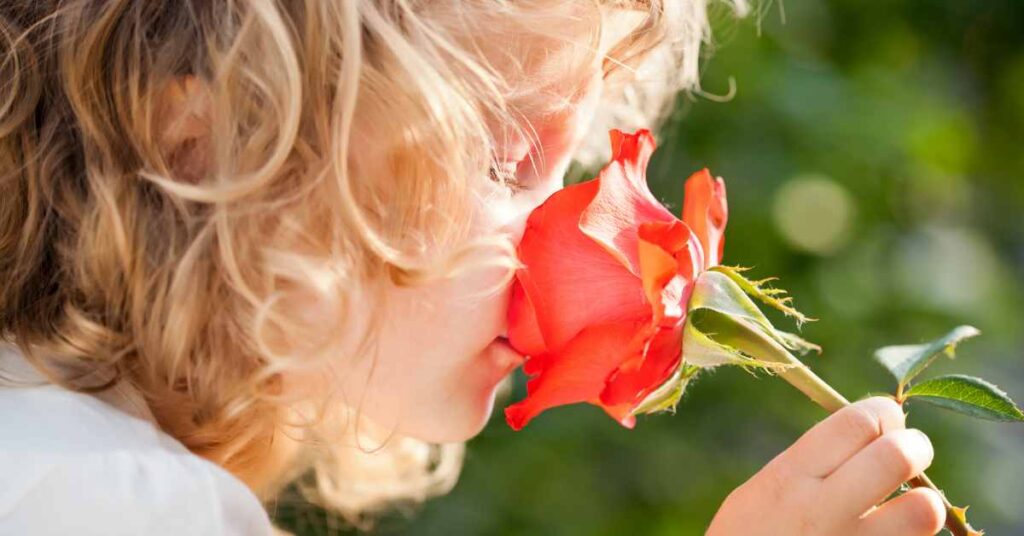
It’s important to note that the development of these senses continues throughout infancy and early childhood, and they become more refined over time.
That is why it is crucial from the beginning of a baby`s life to give him good quality care and relationships with love, trust, and patience to create a positive perception and safe feeling.
Parental care and Creation of Healthy Habits
Parental care is the first and most important step to creating the right perception and feelings which baby receives from the world. It means creating a healthy perception of the external world.
Parenting refers to the intentional and consistent effort made by a parent or caregiver to meet the needs of a child and promote their physical, emotional, social, and cognitive development.
The goal of parenting care is to ensure that children have the necessary support and guidance to thrive and reach their full potential.
There are several components of parenting care, including:
- Physical care: this involves meeting the child’s basic needs for food, shelter, clothing, hygiene, and medical care
- Emotional care: this includes providing love, affection, and emotional support to the child, as well as helping them manage their emotions and build their self-esteem.
- Intellectual care: this involves creating an environment that stimulates the child’s cognitive development and encourages learning and exploration.
- Social care: this includes helping the child develop healthy relationships with others, teaching them social skills, and promoting their participation in social activities.
- Moral care: this involves instilling values and principles in the child, helping them develop a sense of right and wrong, and teaching them to make ethical decisions.
Effective parenting care requires a balance of all these components, tailored to the child’s individual needs. It also requires consistency, patience, and a willingness to adapt as the child grows and develops.
Thus, you can see that taking care of your child properly from birth is essential to create healthy habits and avoiding problems that appear in most cases later.
- Research investigation shows that only 10% of newborns come to this world with diseases (genetic or congenital failure). By the age of 16, already 75% of children have different health issues, such as chronic somatic diseases and psychological disorders.
That is why the creation of healthy habits from birth until the end of childhood is our main goal as parents and as a teacher and as government support.
Creating a healthy lifestyle is the right way to Diseases Prevention and building a new healthy society where every person knows how to behave every day to stay in good health conditions.
Habits are a set of specialized networks of nerve cells. In other words, it is a special set of pathways for transmitting a nerve impulse or information. It’s like developing a reflex. Over time, if the stimulating factor is repeated, a close connection is established between neurons, which will subsequently be difficult to break. These connections between neurons (networks) are behavioral programs.
From this it follows that it is better and cheaper to create healthy habits (healthy programs in the brain) right from birth.
In conclusion, on the formation of the child health influence:
in 65% – family and school, 10% – heredity, 15% – environmental factors, and 10% – medical system.

An important component of children’s health is parenteral care and pedagogical interaction in children’s education on the topic of how to create a healthy lifestyle.
The development of the five senses in children is a complex and ongoing process that begins from birth and continues through infancy and early childhood. Each sense has its own unique development and peculiarities, and they all play a crucial role in a child’s cognitive, social, and emotional development.
Understanding the development of the senses can help parents and caregivers provide an optimal environment for a child’s growth and development.
Resume
- Behavior of parents creates the behavior of children.
- Parents can be a positive example for a child in many ways, such as:
- Modeling healthy behavior: Parents who practice healthy habits like exercising regularly, eating well, getting enough sleep, and managing stress can inspire their children to do the same.
- Showing love and affection: Children need love and affection from their parents to feel secure and develop a healthy sense of self-worth. Parents who show love and affection towards their children can help them feel valued and supported.
- Teaching life skills: Parents can teach their children practical life skills like cooking, cleaning, budgeting, and time management, which can help them become more independent and self-sufficient adults.
- Encouraging learning: Parents who encourage their children to read, explore new ideas, and pursue their interests can help them develop a love of learning that can last a lifetime.
Are you a parent or caregiver looking for ways to improve your child’s health? Our latest article is packed with valuable tips and insights to help you create a healthier environment for your little ones. From nutrition to exercise, sleep habits to stress management, we cover it all. If you found this article helpful, please leave a comment and share it with others who may benefit.
And be sure to subscribe to our newsletter for regular updates and expert advice delivered straight to your inbox!

